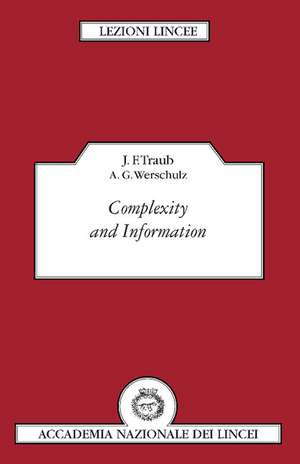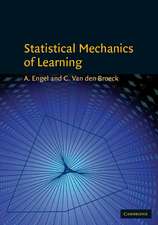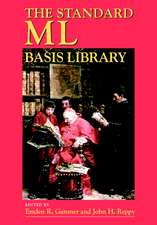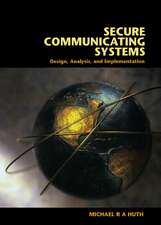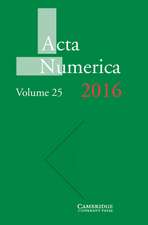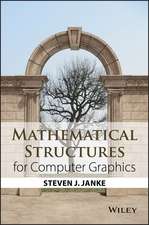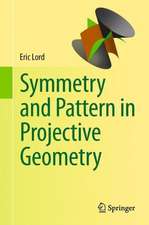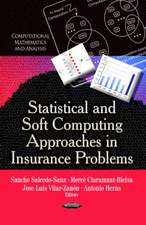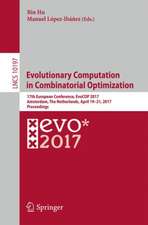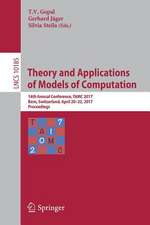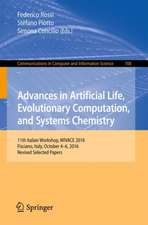Complexity and Information: Lezioni Lincee
Autor J. F. Traub, A. G. Werschulzen Limba Engleză Paperback – 9 dec 1998
Preț: 333.66 lei
Preț vechi: 417.07 lei
-20% Nou
Puncte Express: 500
Preț estimativ în valută:
63.85€ • 68.27$ • 53.23£
63.85€ • 68.27$ • 53.23£
Carte tipărită la comandă
Livrare economică 18 aprilie-02 mai
Preluare comenzi: 021 569.72.76
Specificații
ISBN-13: 9780521485067
ISBN-10: 0521485061
Pagini: 154
Ilustrații: 10 b/w illus. 5 tables
Dimensiuni: 140 x 216 x 9 mm
Greutate: 0.19 kg
Ediția:New.
Editura: Cambridge University Press
Colecția Cambridge University Press
Seria Lezioni Lincee
Locul publicării:Cambridge, United Kingdom
ISBN-10: 0521485061
Pagini: 154
Ilustrații: 10 b/w illus. 5 tables
Dimensiuni: 140 x 216 x 9 mm
Greutate: 0.19 kg
Ediția:New.
Editura: Cambridge University Press
Colecția Cambridge University Press
Seria Lezioni Lincee
Locul publicării:Cambridge, United Kingdom
Cuprins
Part I. Fundamentals: 1. Introduction; 2. Information-based complexity; 3. Breaking the curse of dimensionality; Part II. Some Interesting Topics: 4. Very high-dimensional integration and mathematical finance; 5. Complexity of path integration; 6. Are ill-posed problems solvable?; 7. Complexity of nonlinear problems; 8. What model of computation should be used by scientists?; 9. Do impossibility theorems from formal models limit scientific knowledge? 10. Complexity of linear programming; 11. Complexity of verification; 12. Complexity of implementation testing; 13. Noisy information; 14. Value of information in computation; 15. Assigning values to mathematical hypotheses; 16. Open problems; 17. A brief history of information-based complexity; Part III. References: 18. A guide to the literature; Bibliography; Subject index; Author index.
Recenzii
'Clearly written, filled with interesting examples, important theorems and tantalising conjectures, this is destined to be a classic.' New Scientist
Descriere
This 1998 book covers the twin themes of computational complexity and information.
